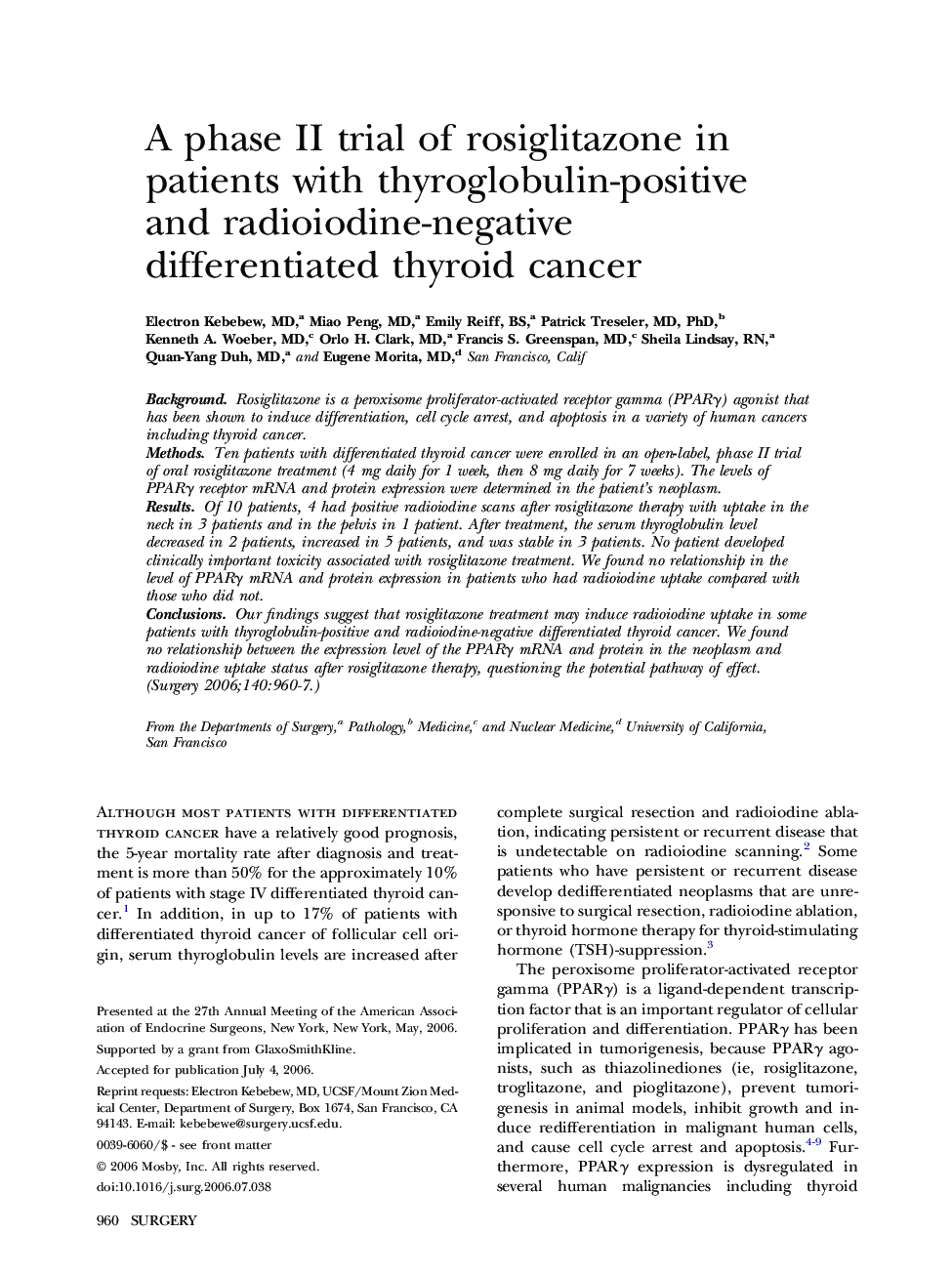| Article ID | Journal | Published Year | Pages | File Type |
|---|---|---|---|---|
| 4310462 | Surgery | 2006 | 8 Pages |
BackgroundRosiglitazone is a peroxisome proliferator-activated receptor gamma (PPARγ) agonist that has been shown to induce differentiation, cell cycle arrest, and apoptosis in a variety of human cancers including thyroid cancer.MethodsTen patients with differentiated thyroid cancer were enrolled in an open-label, phase II trial of oral rosiglitazone treatment (4 mg daily for 1 week, then 8 mg daily for 7 weeks). The levels of PPARγ receptor mRNA and protein expression were determined in the patient’s neoplasm.ResultsOf 10 patients, 4 had positive radioiodine scans after rosiglitazone therapy with uptake in the neck in 3 patients and in the pelvis in 1 patient. After treatment, the serum thyroglobulin level decreased in 2 patients, increased in 5 patients, and was stable in 3 patients. No patient developed clinically important toxicity associated with rosiglitazone treatment. We found no relationship in the level of PPARγ mRNA and protein expression in patients who had radioiodine uptake compared with those who did not.ConclusionsOur findings suggest that rosiglitazone treatment may induce radioiodine uptake in some patients with thyroglobulin-positive and radioiodine-negative differentiated thyroid cancer. We found no relationship between the expression level of the PPARγ mRNA and protein in the neoplasm and radioiodine uptake status after rosiglitazone therapy, questioning the potential pathway of effect.
